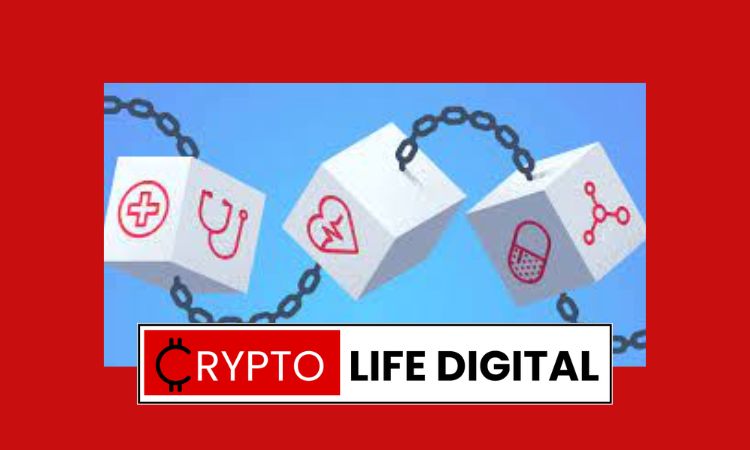Blockchain Tech Can Revolutionize The Healthcare Industry. See How

Blockchain tech has the potential to revolutionize the healthcare industry, transforming the way patient data is stored, shared, and accessed. With traditional healthcare systems often plagued by issues like data breaches, patient privacy violations, and inefficient data management, blockchain-based healthcare systems offer a secure, decentralized, and interoperable solution.
So, what is blockchain tech?
Blockchain is a distributed ledger technology that records transactions securely and transparently. It is a decentralized system that is not controlled by any single entity or authority, and every transaction on the blockchain is verified and recorded by multiple parties, making it virtually impossible to manipulate.
When it comes to healthcare, blockchain technology can provide a secure and transparent system that ensures the privacy and integrity of patient data. By using blockchain-based healthcare systems, patients can have more control over their data, while healthcare providers can ensure the accuracy and security of the data.
Read Also: How Can Blockchain Influence Voting Systems?
Some of the benefits of Blockchain to the Healthcare industry
- One of the main benefits of blockchain-based healthcare systems is that they provide a secure and tamper-proof system for storing patient data. With traditional healthcare systems, patient data is often stored in centralized databases, which are vulnerable to cyber-attacks and data breaches. However, with blockchain-based healthcare systems, patient data is stored in a decentralized system that is not controlled by any single entity or authority. This makes it virtually impossible for hackers or other malicious actors to access, manipulate, or steal patient data.
- Another benefit of blockchain-based healthcare systems is that they offer increased privacy and control over patient data. With traditional healthcare systems, patient data is often shared among multiple healthcare providers, insurance companies, and other entities without the patient’s knowledge or consent. However, with blockchain-based healthcare systems, patients can control who has access to their data, and they can also track and monitor who has accessed their data. This increased transparency and control over patient data can help to build trust between patients and healthcare providers, leading to better healthcare outcomes.
- Additionally, blockchain-based healthcare systems can improve the interoperability of healthcare data. With traditional healthcare systems, patient data is often siloed in different databases, making it difficult for healthcare providers to access and share patient data. However, with blockchain-based healthcare systems, patient data is stored in a standardized format that can be easily accessed and shared by different healthcare providers. This can lead to more coordinated and efficient healthcare delivery, leading to better healthcare outcomes for patients.
Problems that may arise against Blockchain and necessary solutions
Despite the numerous benefits of blockchain-based healthcare systems, several challenges must be addressed before they can be widely adopted. One of the main challenges is ensuring the privacy of patient data. Because the blockchain ledger is transparent, anyone can see patient data stored on the blockchain. To address this issue, some blockchain-based healthcare systems use encryption and other security measures to protect the privacy of patient data.
Read Also: Ripple Whales Move Almost 1 Billion XRP Following The SVB Exposure
Another challenge is ensuring the accuracy and completeness of patient data stored on the blockchain. Because blockchain technology is decentralized and not controlled by any single entity or authority, errors can occur in the data stored on the blockchain. To address this issue, blockchain-based healthcare systems must use robust data verification and validation mechanisms to ensure the accuracy and completeness of patient data.
Blockchain’s Testimonies
Despite these challenges, many healthcare organizations are already exploring the use of blockchain-based healthcare systems. In 2017, the United States Food and Drug Administration (FDA) approved the use of a blockchain-based healthcare platform called Mediledger to track and trace prescription drugs. Other healthcare organizations are exploring the use of blockchain-based systems for medical record management, clinical trials, and supply chain management.
By using blockchain-based healthcare systems, patients can have more control over their data, while healthcare providers can ensure the accuracy and security of the data.
Follow us on Twitter, Facebook, Telegram, and Google News

Cryptolifedigital is a cryptocurrency blogger and analyst known for providing insightful analysis and commentary on the ever-changing digital currency landscape. With a keen eye for market trends and a deep understanding of blockchain technology, Cryptolifedigital helps readers navigate the complexities of the crypto world, making informed investment decisions. Whether you’re a seasoned investor or just starting out, Cryptolifedigital’s analysis offers valuable insights into the world of cryptocurrency.









